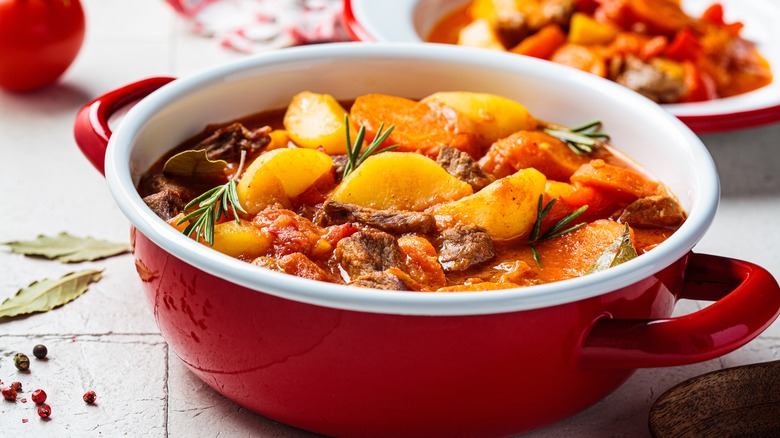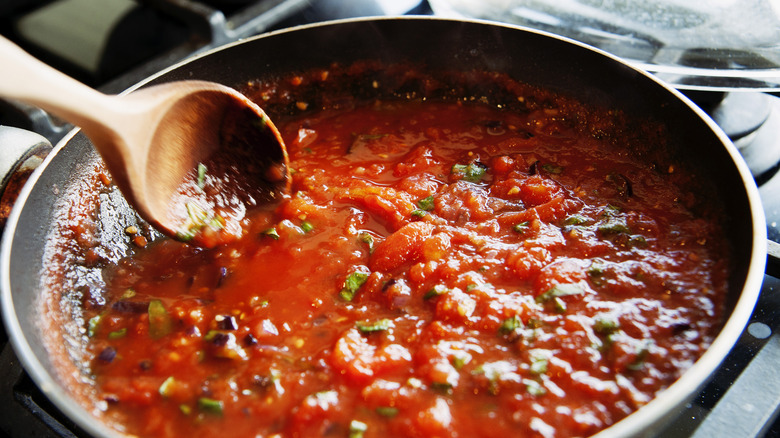Why You May Want To Think Twice Before Cooking Potatoes In Tomato Sauce
Whether you fry, boil, simmer, or sauté them, potatoes can be made in a variety of delicious ways — like crispy old-fashioned scalloped potatoes, tasty home fries, or even decadent potatoes au gratin with gruyere. But the fact that they work so well in recipes isn't the only reason to enjoy them; they're also quite good for you. According to WebMD, potatoes are a great source of fiber, which helps you to feel full longer, helping you lose weight over time. The spuds are also full of antioxidants, the consumption of which helps lower your risk of heart disease and cancer.
Now that you're ready to incorporate more of them into your next dinner, it's worth noting that not all sauces are created equal when cooking this starchy tuber. If you're looking to make an entrée that involves cooking potatoes in tomato sauce, here's why you might want to reconsider.
Cooking potatoes in an acidic sauce takes longer
Potatoes are starchy vegetables that don't break down easily under certain conditions. This is because they contain hemicellulose, a type of carbohydrate that gives them their firm composition, per Bon Appétit. Author Harold McGee writes in his book "On Food and Cooking: The Science and Lore of the Kitchen" that the hemicellulose in potatoes makes them less soluble when cooked in acidic conditions. This means that "vegetables cooked in an acid liquid—a tomato sauce, for example ... may remain firm during hours of cooking, while in neutral boiling water, neither acid nor alkaline, the same vegetables soften in 10 or 15 minutes," McGee explains.
However, if you're worried about your potatoes cooking too fast or losing their shape, boiling them in vinegar could be a good thing because it helps them not to become a mushy mess. But you'll need to have some extra patience while allowing them to soften.

